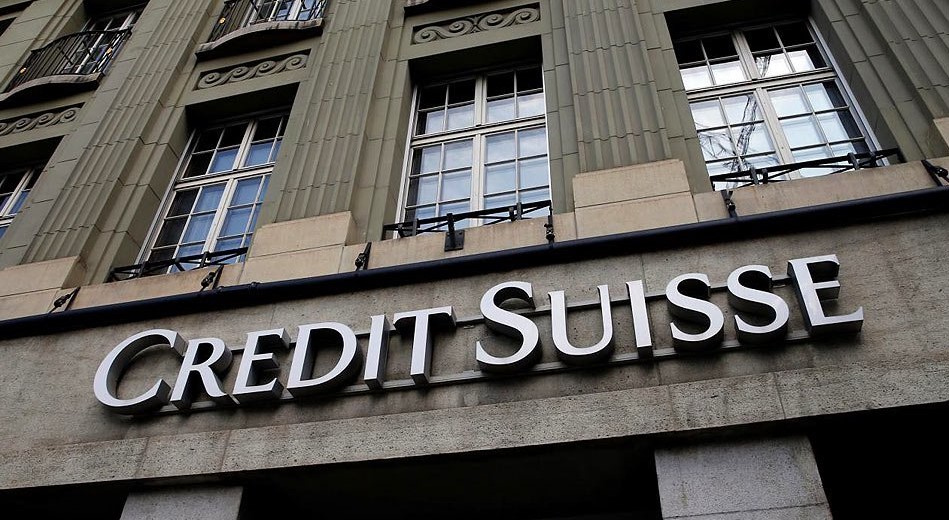Credit Suisse freezes Russian money
August 23, 2018 | Expert Insights

The Swiss Credit Suisse bank froze some CHF5 billion ($5 billion) of assets linked to Russia earlier this year in an effort to confirm with US sanctions levied against Moscow.
Background
Credit Suisse founded in 1856 is a Swiss multinational investment bank and financial services company. Its headquartered in Zurich and was founded to fund the development of the Swiss rail system.
Analysis
Credit Suisse froze the funds in the second quarter of 2018, according to Reuters, in response to sanctions introduced by Washington in April.
The latest round of sanctions was announced in April by U.S. Treasury Secretary Steven Mnuchin to penalize Russia for its annexation of Crimea, involvement in the war in Syria and “attempting to subvert Western democracies.”
The move by Credit Suisse highlights concerns among banks that, ignoring US-imposed sanctions could have negative consequences. In 2014, France's BNP Paribas agreed to pay a record $8.9 billion for violating U.S. sanctions against Sudan, Cuba and Iran.
Switzerland is a preferred destination for Russian oligarchs to send their money to the safety of the Swiss Alps: in 2017, around $6.2 billion, or 14 per cent of total Russian cross-border outflows, went to Switzerland, according to Russian central bank data. It is popular with wealthy Russians for its combination of bank secrecy, political stability and glitzy ski resorts such as Zermatt and St. Moritz
Other Swiss banks, including UBS and Julius Baer, told Reuters that they also respected international sanctions, but they declined to say whether they had proceeded with similar asset-freezing operations.
The move by Credit Suisse, which owned the aircraft surrendered by Russian tycoon Oleg Deripaska and had lent money to Russian oligarch Viktor Vekselberg before the sanctions, underscores a widespread fear among banks of reprisals from Washington for working with targeted Russian individuals and entities.
For Russia’s elite, such steps could close off an important avenue for finance as well as a safe haven for billions of roubles of their wealth.
U.S. President Donald Trump has said he would like better ties with Moscow, but although he met Russian President Vladimir Putin last month, relations between the countries remain strained.
Earlier this month, members of Congress, where both chambers are controlled by Trump’s fellow Republicans, called for more action, including introducing new sanctions legislation “from hell,” to punish the Russian “menace.
While U.S. sanctions do not apply to neutral Switzerland, its banks are obliged to follow suit because they depend on access to the dollar and could be blackballed by the United States for any missteps.
The Credit Suisse asset freeze took place in the second quarter. It is rare for a Swiss bank to reveal such details.
Two of its rivals, UBS and Julius Baer, said they also respected international sanctions but declined to say whether they had taken similar steps.
A spokesman for Julius Baer said it “cooperates with international regulators … in the field of sanction regulations.”
Credit Suisse is being cautious in part because of earlier bad experiences. In 2009, it reached a $500 million settlement with U.S. authorities over dealings with sanctions-hit Iran.
Switzerland’s banking watchdog FINMA does not require Swiss banks to enforce foreign sanctions but has said they have a responsibility to minimize legal and reputational risks.
Assessment
Our assessment is that billions of dollars have reportedly been moved out of Russia to Europe via hundreds of banks, several in Switzerland, in a vast money laundering scheme. We believe that many Swiss companies including Sulzer are trying to free itself from US sanctions by buying back shares to take Russian holdings below 50 per cent.








Comments